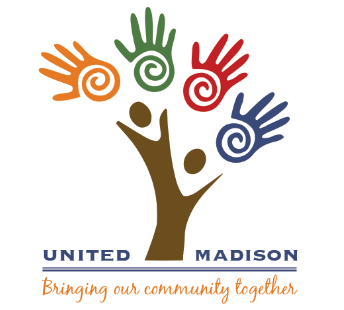#BreakTheStigma
- Jun 12, 2018
- 3 min read
Updated: May 10, 2019

According to the National Institute of Mental Health, one in six U.S. adults and 49.5% of adolescents live with a mental illness. What makes these statistics more concerning is that, currently, only around half of these individuals are receiving treatment. While there are countless reasons why many choose not to seek help, mental illnesses have become so common in the United States that we need take another look at what we are doing to support our community. We need to remember that mental illnesses can be just as debilitating as any other condition.
So what can I do?
Well, our friends at Good Therapy suggested the following ways to get involved:
“Know How to Help Someone in a Crisis”
There are so many resources out there to help those who are struggling, but, sometimes, those folks need a certain caring someone to spot that they are in trouble. Click here to find out how to recognize warning signs.
If you are concerned that yourself or a loved one may be considering suicide, PLEASE GET HELP. The National Suicide Prevention Lifeline is around 24/7 with well-trained professionals who want nothing more than to support you and your loved ones. They have a hotline and an online chat available HERE and other resources for you HERE.
“Share Your Experiences”
Mental illnesses can not only be debilitating but, in many cases, isolating. During Mental Health Month, we encourage you to be empowered and break down the walls of stigma.
“Understand the Power of Language and How It Can Contribute to Stigma”
We understand how common some idioms and phrases are, but we also know just how damaging they can be. There are eight phrases that we challenge you to stop using today!
“I’m so OCD.”
“I so ADHD/ADD.”
“He/She is such a psycho.”
“The weather is so bipolar today.”
“That makes me want to kill myself.”
“Stop being paranoid.”
“I’m addicted to that show.”
“That’s crazy/insane/mad/nuts.”
“Take Care of Yourself”
The best way to take care of those you love is by being your best you. Take the time to meet your own needs. Check out this article about the top twenty most common cognitive distortions and how they affect your life. If you have concerns, please reach out to us at 608-233-9746 and we will help you take the next steps.
“Join the Conversation”
More and more people are taking action to destigmatize mental illness and get help for themselves and their loved ones. We would love to see you out on the front lines too! If you are out in social media land, consider a post or two showing your support. Here are some of the biggest hashtags out there for Mental Health Month.
#MHM2019 #mentalhealth #MentalHealthAwareness #MentalHealthMatters #endthestigma We would also encourage you to take the time to visit the National Alliance on Mental Illnesses page HERE to learn more!
A message from our community partner, United Madison

Sadly, mental health issues continue to rise and it impacts everyone in our community – in families, schools and the workplace which can cause significant disruptions and tragedy within each. We are collaborating with organizations such as Journey Mental Health, NAMI, “Where is Care” and the like, as well as our area media to reach everyone in the greater Madison area. Madison Police Chief Michael Koval is endorsing this campaign and has this to say:
“The Madison Police Department knows how important mental health awareness and education is; which is why we intentionally partner with Journey Mental Health to make this a cornerstone of our officers’ training. We are completely committed to “BPR” (the best possible resolutions) using the least restrictive alternatives when dealing with people under the throes of a crisis but, we also want to acknowledge those genuine “first responders” or people who first come into contact with someone who is struggling with mental health issues. It is often that friend or family member who needs to step up and have the courage to have difficult conversations and to enlist the help of others. We are so grateful that United Madison has created this important public awareness campaign so that more people will be better equipped to deal with these challenges.”
Because friends, family and even coworkers are often the “first responders” when someone is demonstrating signs of a mental health challenge, our campaign not only educates people, it also focuses on helping them navigate this journey and possibly save lives.
Please access their website here for details and to make donations.




Comments